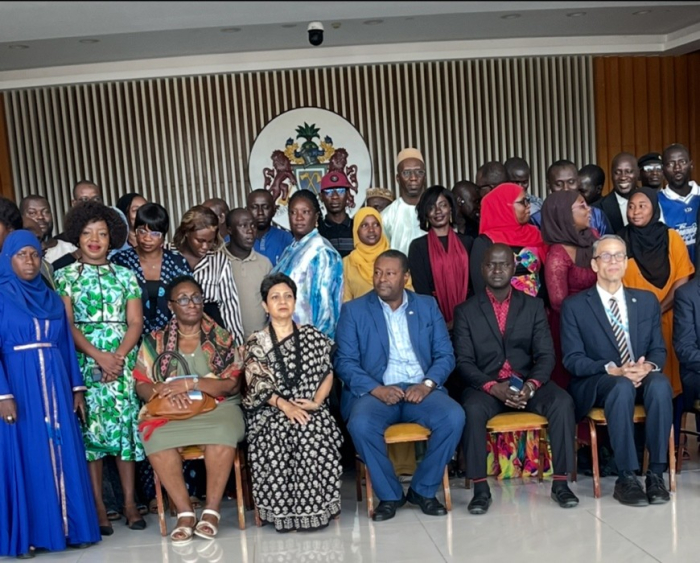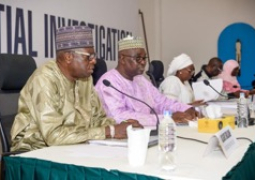
The dialogue forms part of joint efforts to strengthen the legal, policy, and institutional frameworks that govern food security and nutrition in The Gambia. It seeks to identify challenges, share best practices, and develop actionable strategies that ensure every Gambian enjoys the right to adequate food.
Emmanuel D. Joof, chairperson of the NHRC, emphasised that food is a fundamental human right alongside civil, political, and cultural freedoms. He revealed that with FAO’s support, the NHRC has developed an advisory note assessing gaps in the current framework. The note calls on government to harmonise laws and policies, ratify the Optional Protocol on the Covenant on Economic, Social and Cultural Rights, and recognise the justiciability of the right to food to combat chronic malnutrition and insecurity.
“This convergence is timely,” Joof stressed. “Food security must be treated as a human right, not a privilege. Our international commitments make this a binding obligation, not a matter of choice.”
UN Resident Coordinator Karl Frédérick Paul, described the right to food as “more than the absence of hunger,” highlighting its connection to dignity, culture, and sustainability. He linked the effort to The Gambia’s obligations under international human rights law, the African Charter, and the Sustainable Development Goals, particularly those on zero hunger, poverty reduction, health, and equality.
“Food must be available, accessible, and affordable to all without discrimination,” Paul stated. He underscored that the dialogue was not only about producing recommendations but about forging partnerships and ensuring accountability, with the voices of women, youth, and small-scale producers at the center.
Representing the Minister for Agriculture, Dr. Lamin Sonko reaffirmed government’s commitment to making agriculture the backbone of food security and national development. With over 50 percent of Gambians employed in the sector, agriculture contributes up to 30 percent of GDP. Policies such as the National Rice Development Strategy and the Agriculture and Natural Resources Policy aim to transform subsistence farming into a more commercial and productive system, prioritising rice, livestock, horticulture, and groundnuts.
He noted that while food production is vital for economic growth, sustainability is equally important to mitigate environmental impacts. Current partnerships with FAO, including the introduction of bio-fortified crop varieties, are helping to address both nutrition and productivity needs.
As discussions continue, participants are expected to examine legal and budgetary gaps, share comparative best practices, and outline an actionable roadmap. The ultimate goal: to guarantee that no Gambian is left behind in the fight against hunger and that access to food is recognised as a right owed to all, not a privilege for some.
Read Other Articles In Headlines
YSMP CEO bemoans plight of Gambia movie industry
Nov 23, 2022, 11:56 AM




